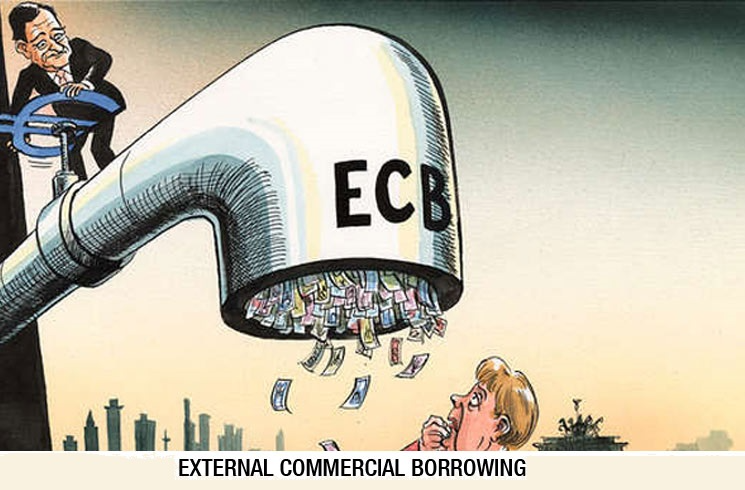External Commercial Borrowing (ECB)
Home
External Commercial Borrowing (ECB)
Looking to raise capital from overseas to fund your business growth in India? External Commercial Borrowing (ECB) offers Indian companies access to low-cost foreign debt. At AMG Corporate Avenues LLP, we provide end-to-end support to structure, secure, and comply with RBI guidelines on ECB, ensuring your funding process is fast, transparent, and risk-free.
✅ ECB Advisory under Automatic & Approval Routes
✅ End-to-End RBI Compliance & Form Filings
✅ Assistance in Loan Agreements & Foreign Lender Vetting
✅ Strategic Structuring for Tax & Repayment Efficiency

What Is External Commercial Borrowing (ECB)?
External Commercial Borrowing refers to the funds raised by eligible Indian entities from foreign lenders in the form of loans, bonds, or other debt instruments. ECBs can be an effective route for businesses to raise foreign currency funds at lower interest rates compared to domestic loans, making them ideal for capital expenditure, infrastructure projects, or global expansion.
ECB is regulated by the Reserve Bank of India (RBI) and governed under the Foreign Exchange Management Act (FEMA), 1999. It involves adherence to strict eligibility criteria, end-use restrictions, borrowing limits, and repayment guidelines.
Types of ECB Instruments Allowed
- Foreign Currency Loans from International Banks or Financial Institutions
Indian companies can borrow directly in foreign currency from international financial institutions or overseas banks. These loans often come with competitive interest rates, long repayment terms, and are suitable for funding large infrastructure or expansion projects. - Buyer’s and Supplier’s Credit Arrangements
In this structure, a foreign buyer or supplier offers deferred payment terms to an Indian company for imports or purchases. The credit is backed by a financial institution, and repayment is made over an agreed period. It helps businesses manage working capital without an immediate outflow. - Non-Convertible Debentures (NCDs) Issued to Foreign Investors
Indian companies can raise funds by issuing NCDs to qualified foreign investors. These debentures are debt instruments that cannot be converted into equity and typically carry a fixed interest rate. They offer a stable, predictable return for investors and a non-dilutive funding source for the company. - Bonds Issued to Offshore Institutional Investors
Companies can issue bonds in international capital markets, such as Eurobonds or Masala Bonds, to raise long-term capital from global investors. These instruments help tap into a wide investor base and are ideal for entities with global exposure or expansion plans. - Loan Agreements with Foreign Shareholders or Group Companies
An Indian company can borrow from its overseas parent, subsidiary, or group entity under specific conditions. These intra-group loans are especially useful for startups and multinational corporations that need internal funding support, often at favourable terms and reduced due diligence.
Who Can Lend Under External Commercial Borrowing?
Under the External Commercial Borrowing (ECB) framework, not every foreign entity is eligible to extend loans to Indian borrowers. The Reserve Bank of India (RBI) has defined a list of recognized lenders to ensure that funds are sourced from legitimate and transparent channels. These include:
- International Banks or Capital Market Participants
Overseas banks and financial institutions, including underwriters and fund managers operating in recognized capital markets, are eligible to lend. These entities often provide long-term, foreign currency loans for infrastructure, capital expansion, and other large-scale needs. - Export Credit Agencies (ECAs)
ECAs are institutions that support international trade by providing financing to foreign buyers of a country’s exports. Indian businesses can borrow from ECAs for the import of capital goods or technology, usually under buyer’s credit arrangements. - Multilateral Financial Institutions
Organizations like the International Finance Corporation (IFC), Asian Development Bank (ADB), and World Bank can offer concessional loans under the ECB, especially for projects in the energy, sustainability, and development sectors. - Foreign Equity Holders
A foreign shareholder holding at least 25% direct equity in the Indian borrowing entity is permitted to lend under ECB. This is particularly helpful for foreign JV partners or parent companies providing financial support to their Indian arm. - Foreign Branches or Subsidiaries of Indian Companies
In certain cases and under specified conditions, even overseas subsidiaries or branches of Indian companies can act as lenders. This helps optimize global treasury operations within corporate groups.
- International Banks or Capital Market Participants
End-Use of ECB Proceeds: What’s Allowed?
ECB funds can be used for various productive purposes, including:
- Capital expenditure on new or existing plants
- Modernization and infrastructure projects
- Import of capital goods and machinery
- Overseas acquisition of assets or shares
- Working capital (only under specific conditions)
- Refinancing of existing ECB (subject to terms)
Prohibited Uses:
- Real estate investment (other than infrastructure)
- Purchase of land or farmhouses
- Investment in capital markets
- Equity investment or on-lending for such purposes

ECB Process & Our End-to-End Support
Feasibility & Structuring Assessment
Lender Identification & Coordination
Loan Agreement & Documentation
RBI Filings & LRN Procurement
Fund Drawdown & Ongoing Reporting
Tax Planning, Repayment & Monitoring
Why the ECB is a Strategic Option for Your Business
- Access to Global Capital: Tap into low-interest international funding otherwise unavailable in the Indian banking system.
- Longer Repayment Periods: ECB loans often come with extended tenures, easing cash flow pressure.
- Currency Diversification: Raise funds in USD, EUR, JPY, or other currencies depending on trade exposure.
- Non-Dilutive Capital: Unlike equity financing, ECBs do not dilute ownership or control of your company.
- Competitive Edge: Scale faster, expand globally, or invest in R&D with reliable foreign funding.

Who Should Consider ECB (External Commercial Borrowing)?

🔹Export-Oriented Businesses
Companies focused on exports can use ECB to expand manufacturing capacity, acquire global assets, or scale their international operations efficiently.
🔹Startups with Global Ambitions
Indian startups looking to grow internationally or bring in foreign shareholders can raise funds through ECB to fuel expansion and innovation.
🔹Infrastructure & Capital-Intensive Projects
Infrastructure developers and large-scale manufacturers benefit from the ECB as it offers long-term financing at relatively lower interest rates.
🔹Companies with Foreign Trade Exposure
Businesses engaged in cross-border trade can match revenue and repayment currencies through the ECB, minimizing forex risks.
🔹Firms with Limited Domestic Credit Access
Companies with lower credit ratings in India but strong global alliances may find easier access to external funding via the ECB.
🔹Debt Refinancing Strategy
Business groups looking to refinance high-interest domestic loans often turn to the ECB for cheaper, more flexible borrowing options.
Why Choose AMG Corporate Avenues LLP for ECB Advisory?
RBI & FEMA Experts
Our professionals specialize in cross-border financial regulations and ensure end-to-end compliance with RBI and FEMA rules.
Global Network Access
We work closely with foreign banks, capital advisors, and financial consultants to connect you with legitimate lenders worldwide.
Strategic Structuring Support
From hedging guidance to tax-efficient interest structures, we design a borrowing plan that’s legally sound and business-smart.
Holistic Documentation & Follow-up
Our team handles all required filings, Form ECB, LRN application, ECB-2 returns, and drawdown updates, so you focus on your operations.
Dedicated Expert Guidance
You’ll be supported by professionals, including Chartered Accountants, CS, and financial consultants, throughout every stage, from negotiation to post-borrowing compliance.
Why Choose AMG Corporate Avenues LLP for ECB Advisory?
RBI & FEMA Experts
Our professionals specialize in cross-border financial regulations and ensure end-to-end compliance with RBI and FEMA rules.
Global Network Access
We work closely with foreign banks, capital advisors, and financial consultants to connect you with legitimate lenders worldwide.
Strategic Structuring Support
From hedging guidance to tax-efficient interest structures, we design a borrowing plan that’s legally sound and business-smart.
Dedicated Expert Guidance
You’ll be supported by professionals, including Chartered Accountants, CS, and financial consultants, throughout every stage, from negotiation to post-borrowing compliance.
Holistic Documentation & Follow-up
Our team handles all required filings, Form ECB, LRN application, ECB-2 returns, and drawdown updates, so you focus on your operations.
Frequently Asked Questions (FAQs)
No, Most ECBs can be raised under the automatic route, subject to sector and borrower eligibility. Others require prior RBI approval.
Yes, Startups recognized by DPIIT can raise up to USD 3 million per year under the automatic route with specific conditions.
Generally, it is 3 years, but for certain end-uses and lenders, it can vary from 1 to 10 years based on RBI guidelines.
Yes, the interest rate should not exceed the benchmark rate (SOFR, EURIBOR, etc.) plus a spread of 450 basis points.
Yes, INR-denominated ECB is permitted under certain conditions from foreign lenders or equity holders.
